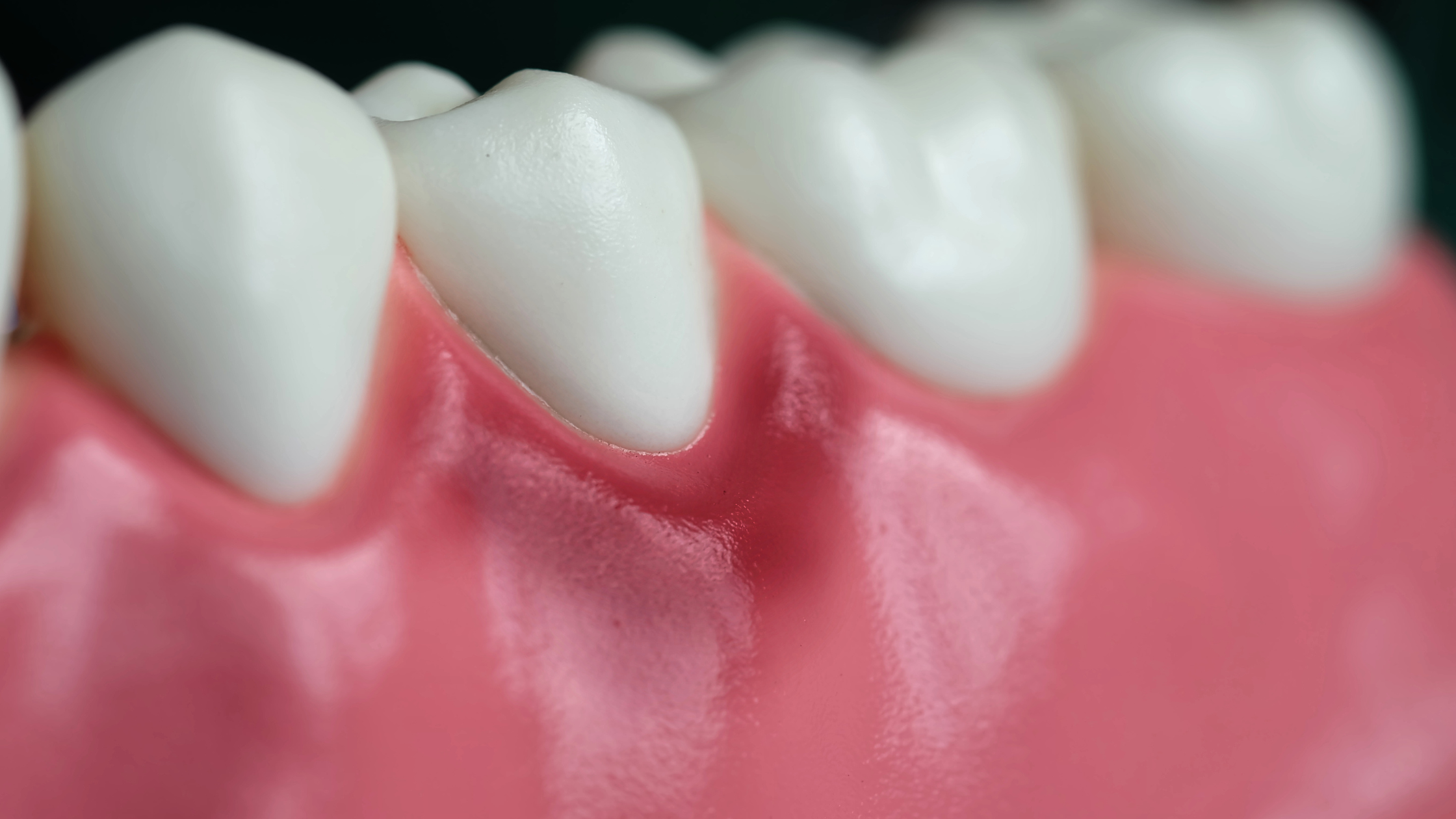September is National Gum Care Month, a time to raise awareness of the importance of…

Understanding Gum Disease: Symptoms, Causes & Prevention
Gum disease might sound like just a dental issue, but its impact reaches far beyond your mouth. Let’s explore what gum disease is, its symptoms, causes, prevention tips, and how to find the best care in Steele Creek, Charlotte, NC.
What Is Gum Disease?
Definition of Gum Disease
Gum disease, also called periodontal disease, is an infection of the gums caused by plaque and tartar buildup. It ranges from mild inflammation (gingivitis) to severe damage to the supporting structures of teeth (periodontitis).
The Difference Between Gingivitis and Periodontitis
Gingivitis is the initial stage, marked by red and swollen gums. If untreated, it can progress to periodontitis, where gums pull away from teeth, forming pockets that become infected.
Read More : Transform Your Smile: Understanding the Benefits of Cosmetic Dentistry
Common Symptoms of Gum Disease
Early Signs of Gingivitis
- Red, swollen, or tender gums
- Bleeding during brushing or flossing
- Persistent bad breath
Advanced Symptoms of Periodontitis
- Receding gums
- Loose or shifting teeth
- Pain while chewing
Read More : The Importance of Preventing Gum Disease for Adults
Causes of Gum Disease
Poor Oral Hygiene
Failing to brush and floss regularly leads to plaque buildup, a major cause of gum disease.
Smoking and Tobacco Use
Smoking weakens your gums’ ability to heal, making you more susceptible to infections.
Genetic Factors
Some individuals are genetically predisposed to gum disease, even with good oral care.
Medical Conditions Contributing to Gum Disease
Conditions like diabetes, osteoporosis, and immune deficiencies can increase your risk.
Stages of Gum Disease
Gingivitis: The Initial Stage
This early stage is reversible with proper care. Regular dental cleanings can help.
Periodontitis: The Advanced Stage
Here, permanent damage to gums and bone occurs, requiring more intensive treatment.
How Gum Disease Impacts Your Health
Connection to Heart Disease
Studies show that gum disease increases the risk of heart conditions due to inflammation.
Links to Diabetes
Uncontrolled diabetes can worsen gum disease, and vice versa.
Potential Pregnancy Complications
Pregnant women with gum disease may face risks like preterm birth or low birth weight.
Preventing Gum Disease
Proper Oral Hygiene Practices
- Brush twice daily with fluoride toothpaste.
- Floss daily to remove food particles between teeth.
Diet and Nutrition
A balanced diet rich in vitamins and minerals supports healthy gums.
Avoiding Risk Factors
Quit smoking and limit sugary snacks to reduce your risk.
Importance of Regular Dental Visits
Visit your dentist twice a year for cleanings and early detection of issues.
Treatment Options for Gum Disease
Non-Surgical Treatments
- Scaling and root planing (deep cleaning)
- Antibiotic therapy to fight infection
Surgical Interventions
- Flap surgery for advanced cases
- Bone grafting to restore lost bone
Choosing the Right Dentist in Steele Creek, Charlotte, NC
Why Location Matters
Finding a dentist near you ensures convenience and regular follow-ups.
What to Look for in a Dentist
Seek professionals with experience in gum disease treatment, like Steele Creek Smiles, for personalized care.
Conclusion
Gum disease is preventable and treatable with the right care and attention. Don’t ignore early signs—schedule an appointment with Dr. Vaibhav Bajaj of Steele Creek Smiles, Charlotte, NC today to protect your smile.
FAQs
Q. What are the first signs of gum disease?
A. The earliest signs include red, swollen gums that bleed easily during brushing or flossing.
Q. Can gum disease be reversed?
A. Yes, gingivitis, the early stage, can be reversed with proper oral hygiene and professional care.
Q. How often should I visit a dentist for gum disease prevention?
A. Visit at least twice a year for regular check-ups and cleanings.
Q. Are there home remedies for gum disease?
A. While proper brushing and rinsing with antibacterial mouthwash can help, professional treatment is essential for advanced stages.
Q. How does smoking affect gum health?
A. Smoking weakens your gums’ ability to fight infections, significantly increasing the risk of gum disease.



